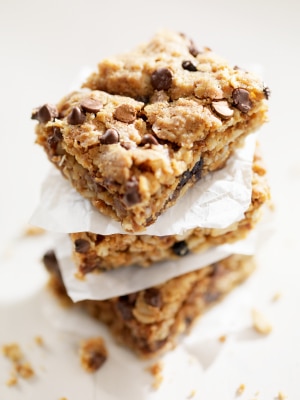 Gluten-free diets are emerging as a major trend that helps dieters with celiac disease live healthier, fuller lives. Gluten is a sticky protein found in wheat, barley, and rye. It is harmful to people with celiac disease because they cannot absorb nutrients in the intestines when they consume gluten. Dieters with this disease have found that gluten-free diets eliminate problems with digestion, abdominal pain, and nutritional deficiencies. Gluten-free diets also lower patients’ risks of cancer, obesity, and chronic pain, leaving them instead with higher energy levels and a new enthusiasm for life. Many dieters have difficulty maintaining their gluten-free diets at first, but these five tips will make this transition to healthier eating much more manageable.
Gluten-free diets are emerging as a major trend that helps dieters with celiac disease live healthier, fuller lives. Gluten is a sticky protein found in wheat, barley, and rye. It is harmful to people with celiac disease because they cannot absorb nutrients in the intestines when they consume gluten. Dieters with this disease have found that gluten-free diets eliminate problems with digestion, abdominal pain, and nutritional deficiencies. Gluten-free diets also lower patients’ risks of cancer, obesity, and chronic pain, leaving them instead with higher energy levels and a new enthusiasm for life. Many dieters have difficulty maintaining their gluten-free diets at first, but these five tips will make this transition to healthier eating much more manageable.
Those who decide to eat gluten-free can shift to new eating habits in two ways: they can either do so gradually or eliminate all glutinous foods immediately. Patients with celiac disease should strive to eliminate gluten fairly quickly since consuming gluten can cause problems with digestion. If self-control is an issue, however, or a dieter would enjoy a more gradual change, slowly eliminating gluten may be the right choice. A dieter who decides to slowly shift to gluten-free eating should strive to eat fewer glutinous foods each week. For example, a dieter could eliminate one-fourth of his or her original gluten intake each week. Those who immediately remove gluten from their diets should discard all glutinous foods in their homes before beginning their diets. Doing this will make dieters less tempted to eat foods that contain gluten.
Dieters will be able to maintain their new eating habits most effectively if they find delicious substitutes for glutinous foods. One of the most popular wheat substitutes is rice, which can be made into bread and noodles that often taste better than those made with wheat. Rice is also low in calories, which makes this substitute an excellent option for those hoping to lose weight. Groundnuts are another wonderful wheat substitute and can be made into tasty muffins or bread. Nuts are high in protein and vitamins, making them a nutritious substitute for wheat.
When switching to any new eating plan it is crucial that dieters avoid tempting foods that are not on the diet. Gluten-free dieters can avoid unhealthy temptations by shopping at health food stores that have gluten-free foods available. Many health food stores are now aware of the needs of people with celiac disease, so they have incorporated gluten-free sections into their stores. Those who are tempted by food with gluten can now usually find a similar food that is gluten-free. For example, a dieter can now find cookies that are made with rice instead of wheat. If a store does not have a gluten-free section dieters should notify the store of their needs so that a gluten-free food section can be created. Gluten-free dieters can also reduce the temptation of glutinous foods by avoiding fast food restaurants that have few healthy options. When eating outside their homes, dieters can go to restaurants that have gluten-free menus available. Customers can easily obtain one of these menus simply by asking a waiter or cashier.
Those who find support in their communities for their gluten-free eating habits are much more likely to continue to eat healthily. Patients can ask about support groups for gluten-free dieters at health centers or hospitals. Many online support groups also provide a sense of community and encourage dieters to maintain their eating habits. Awareness of the benefits of gluten-free diets is growing so such groups will only become more popular in the future.
Dieters can also maintain their motivation to eat gluten-free by learning about the health benefits that come from avoiding gluten. An overweight dieter, for example, will be much more likely to avoid gluten when he or she has learned that gluten-free diets are lower in calories and promote weight loss. Many books and articles are available that can educate dieters about celiac disease and the advantages of gluten-free diets. Dieters who learn about their new eating habits are much more likely to stay motivated while learning to eat gluten-free.
Following these five tips will help any dieter who has decided to eat gluten-free to avoid glutinous foods. Although changing dietary habits is difficult for everyone, making this change is easier when dieters have support from their communities and educate themselves about the benefits of gluten-free diets. Dieters who learn about appetizing substitutes for glutinous grains will easily maintain their motivation to eat gluten-free. If dieters also avoid places where they will be tempted to eat glutinous foods the temptation to eat unhealthily will nearly disappear. Gluten-free dieters with celiac disease will then be able to enjoy much higher energy levels, excellent nutrition, and healthier lifestyles. (Make sure to check out our Gluten-Free recipes).
Related Articles By Cathe:
Do Gluten-Free Diets Help with Weight Loss?
Do You Really Need That Gluten-Free Diet?
Can Going Gluten Free Make You a Better Athlete?

